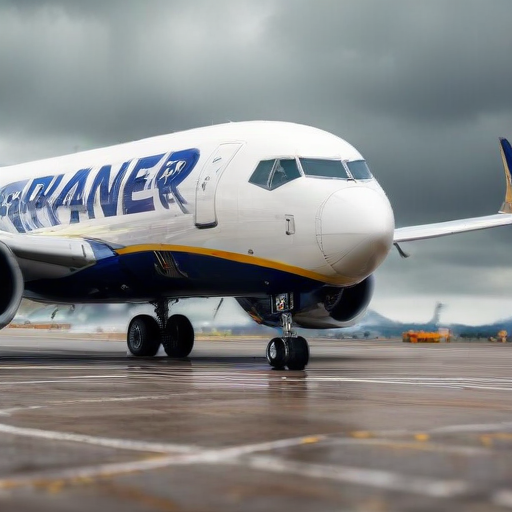Ryanair is currently facing challenges that have affected its business performance, leading to a decline in investor confidence. The Irish budget airline’s stock has fallen by 17% following the release of a quarterly earnings report that fell short of expectations. The company reported revenues of €3.6 billion ($4 billion), which remained largely unchanged from the previous year. However, profits took a significant hit, dropping nearly 50% to €336 million.
CEO Michael O’Leary acknowledged that while passenger traffic has increased by 10%, reaching 55 million travelers, the airline is having to work hard to maintain this growth, often by stimulating fares and bookings. He noted that demand has been weaker than anticipated, especially as the peak travel months of July, August, and September approach.
In addition to the drop in demand, Ryanair is contending with rising labor costs and has cited Boeing’s delivery delays as another factor impacting operations. O’Leary has been vocally critical of Boeing, demanding improvements after a recent incident involving a 737 Max 9.
Despite these obstacles, O’Leary pointed out that the economic realities facing customers in the European Union, such as inflation and stagnant growth, may lead to reduced capacity going into summer 2025. He suggested that operating fewer aircraft might actually be advantageous for Ryanair in the current economic climate, as consumer spending continues to be under pressure. The lack of capacity growth over the next two years could position the airline favorably in a challenging market.
In conclusion, while Ryanair is navigating a period of uncertainty with various operational hurdles, there is a potential silver lining. As the airline plans for reduced capacity, it could allow for better resilience against market fluctuations, suggesting a strategic pivot that may serve them well in the long run.
